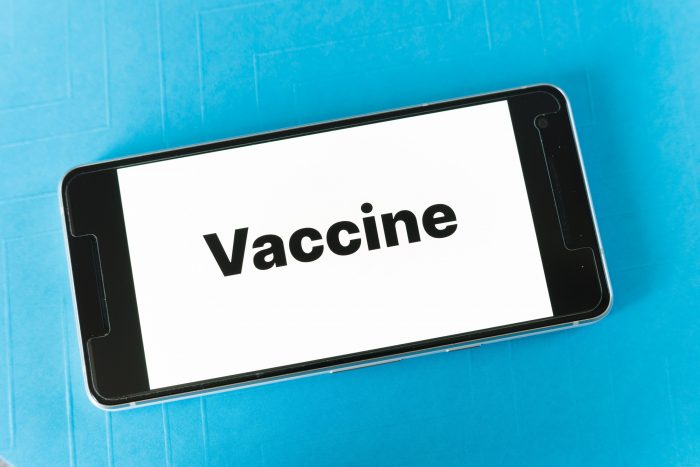Every health and human services organization understands the enormity of the workforce crisis. Recruitment and retention have become impossible and vacancies across all service lines are evident. Unfortunately, this has also led to program closures without an end in sight. And that is one of the most alarming parts of this situation – what will change that will truly address the crisis?
[View the full RCPA position paper]Long-Term Care Facility (Including IDD) Providers Webinar
A Review of PENNSYLVANIA DEPARTMENT OF HEALTH 2021 – PAHAN – 569 – 4-30 – UPD UPDATE: Work Restrictions for Healthcare Personnel with Exposure to COVID-19
Friday, August 6, 2021
9:30 am–10:30 am
COVID-19 infection rates are projected to increase in Pennsylvania due to a number of factors. There is concern that this increase in infections will exacerbate the already straining staffing capacity of long-term care facilities. To ensure that we are prepared to support some of the most vulnerable populations, Holly Simpson from the Pennsylvania Department of Health will present a review of the information contained in PA HAN 569. This review will include topics such as defining a “high-risk” exposure for healthcare personnel (HCP), how and when work exclusion for HCP should occur, testing strategies for HCP, and criteria for reducing work exclusion for HCP to mitigate staffing shortages.
Register here.
Businesses See an Increase in Unemployment Fraud
US Employers Ratchet Up the Pressure on the Unvaccinated
Pennsylvania Department of Health 2021 Updated Guidance
Alison V. Beam, JD, Acting Secretary of Health
Public Health Recommendations for People Fully Vaccinated Against COVID-19 DISTRIBUTION
Pennsylvania Department of Health (DOH) provides this guidance based on available information about COVID-19 and is subject to change. On July 28, the Centers for Disease Control and Prevention (CDC) updated their recommendations for individuals who are fully vaccinated against COVID-19 given new evidence on the B.1.617.2. (Delta) variant currently circulating in the United States.
Based on these updated recommendations, the Pennsylvania Department of Health (DOH) is updating guidance for individuals exposed to COVID-19. This guidance, which replaces PA-HAN-566, provides clarification on quarantine guidance and public health mitigation strategies (e.g., masking, social distancing) based on vaccination status.
- This guidance replaces PA-HAN-566 and provides clarification on quarantine recommendations for persons exposed to SARS-CoV-2.
- In counties with substantial or high transmission, CDC and DOH recommend all persons, regardless of vaccination status, to wear a mask in public indoor settings.
- Fully vaccinated people who have had a known exposure to someone with suspected or confirmed COVID-19 are to be tested 2–5 days after exposure and should wear a mask in public indoor settings for 14 days or until they receive a negative test.
- Regardless of vaccination status, any person with new or unexplained symptoms of COVID-19 still needs to isolate and be evaluated for SARS-CoV-2 testing.
- If you have questions about this guidance, please call your local health department or 877-PA-HEALTH (877-724-3258).
Free Online Training for Personal Care Home/ALR Administrators Offered by Temple University
Temple University Harrisburg has announced their free fall 2021 training programs for personal care home (PCH) and assisted living residence (ALR) providers. The training programs will be offered fully online and may be counted toward annual administrator training requirements.
The training sessions that will be offered include:
- Creating Engaging and Purposeful Recreational Programming — Register here.
- When Self-Care is Not Enough: Using Organizational Culture to Address Stress and Burnout — Register here.
Please only register for these sessions if you are sure you will be able to complete them. Participation is limited for each course. If you register and later discover you are unavailable to participate, please cancel your registration to allow another individual to participate.
If you have any questions or need technical assistance with registering, please email Temple University or call Temple at (215) 204-4866.
Financial Management Services Stakeholder Meeting Scheduled for August 6
The Office of Long-Term Living (OLTL) issued a notice of an upcoming Financial Management Services (FMS) stakeholder meeting scheduled for August 6, 2021 from 1:00 pm–2:30 pm. This public meeting will be to discuss upcoming changes for the administration of FMS under the Community HealthChoices (CHC), OBRA Waiver, and Act 150 programs. Representatives from OLTL and CHC Managed Care Organizations (MCOs) will be in attendance to discuss upcoming changes. Meeting details are below:
Join from the meeting link
Join by meeting number
Meeting number (access code): 132 276 5679
Meeting password: kiDvMyG7S35
Tap to join from a mobile device (attendees only)
+1-408-418-9388,,1322765679## United States Toll
+1-202-860-2110,,1322765679## United States Toll (Washington D.C.)
Join by phone
+1-408-418-9388 United States Toll
+1-202-860-2110 United States Toll (Washington D.C.)
Global call-in numbers
Join from a video system or application
Dial [email protected]
You can also dial 173.243.2.68 and enter your meeting number.
RCPA, COVID, Meetings, and the Annual Conference
Each day we learn more about COVID and try to better understand the rules and guidelines being promulgated for safety. Just a couple of months ago, RCPA announced that we will continue all events virtually. One month later, we announced the ability to hold hybrid events with the option to attend in person. Clearly, that is what we all want, and what we hear from RCPA members.
So, with the Annual Conference approaching at the end of September, we need to again re-evaluate where we are with our approach to such events. And discussion about COVID was obviously a big part of last week’s virtual RCPA Board meeting.
As of today, here are the RCPA guidelines:
- Annual Conference. The plan proceeds with a fully hybrid event. You can attend in-person for part or all of the conference and it will all be available virtually as well. We already have many sponsors and exhibitors — and the program, which is excellent, is near completion. The change, however, is that we are requiring on-site attendees — including speakers, exhibitors, etc. — to be fully vaccinated. It is the most responsible approach at this time, and you will be seeing more about this shortly. If you are not vaccinated, or are just uncomfortable attending in person, the virtual event is available and we hope you actively participate, as many did at our successful virtual conference last year.
- Meetings. Similarly, each RCPA division director will be discussing with members whether any upcoming meetings will be in person, hybrid, or virtual. Again, all such meetings will require on-site attendees to be fully vaccinated.
- Provider Site Visits. One of the hallmarks of RCPA is that staff historically have spent a great deal of time “on the road” visiting with providers for better understanding programs, services, issues, etc. COVID clearly brought that practice to a halt. Of recent, some of these important visits have been reinstated. Moving forward, this will be based on a case-by-case discussion between the RCPA staff member(s) and the provider organization.
The most current federal and local guidance will be followed regarding mask wearing at all events. Having outlined all of the above, we all know it can change again tomorrow. But given the many questions and comments from members on this issue, we felt it important to document the thinking at this time.
Thank you,
DOH Launches Text Messaging Initiative To Get More Pennsylvanians Fully Vaccinated

PA ABLE Savings Program: Free Webinars for Individuals with Disabilities, Families, and Professionals
A PA ABLE Savings Program account gives individuals with qualified disabilities (Eligible Individuals), and their families and friends a tax-free way to save for a wide range of disability-related expenses while maintaining government benefits. The state and federal tax-free investment options are offered to encourage Eligible Individuals and their families to save private funds to support health, independence, and quality of life.
To help you learn about the important features and benefits of PA ABLE, the Pennsylvania Treasury Department is hosting free webinars.
Some of the topics that will be discussed include eligibility requirements for opening a PA ABLE account, the federal and state tax benefits of PA ABLE, and how PA ABLE account interacts with current benefits.
- Wednesday, August 4, 2021 12:00 pm–1:00 pm (ABLE to Save Month Webinar)
- Tuesday, September 14, 2021 12:00 pm–1:00 pm
Employers and HR professionals can participate in an overview webinar about the PA ABLE program, learning:
- What PA ABLE is;
- Who is eligible;
- How employees use accounts; and
- How to set up payroll deduction.
Offer PA ABLE Savings Program to Your Employees For FREE:
















